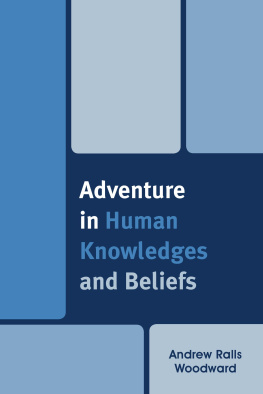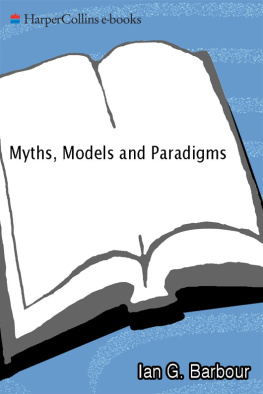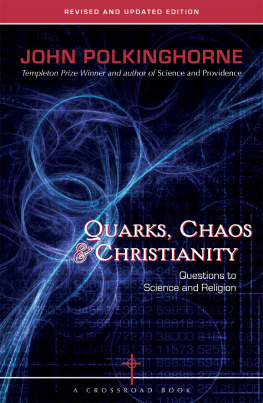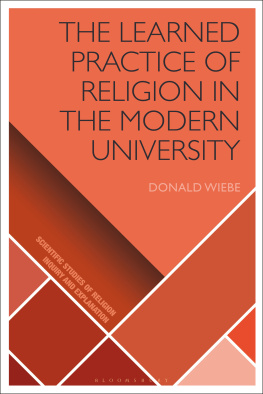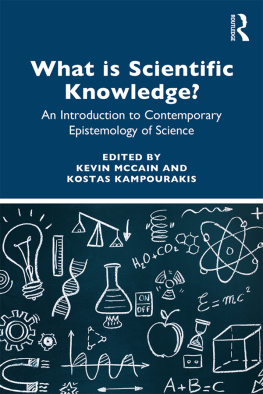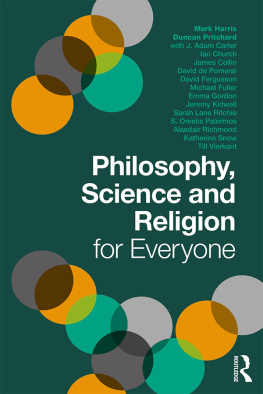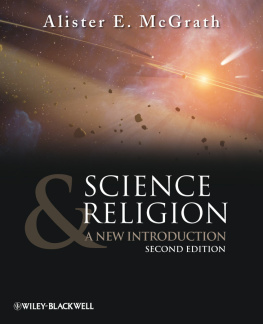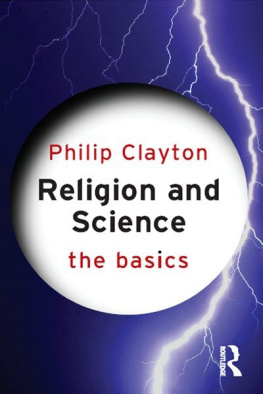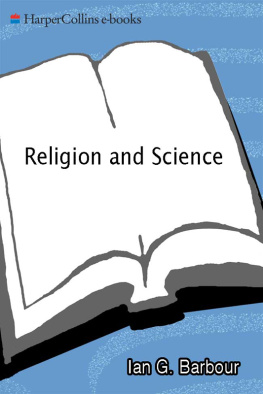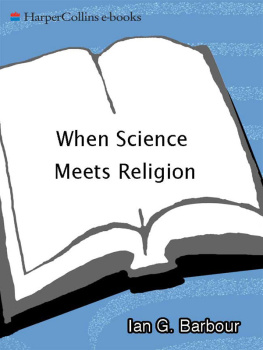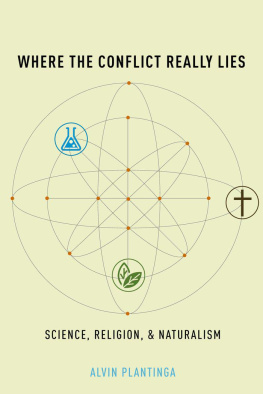Copyright 2018 Andrew Ralls Woodward. All rights reserved. Except for brief quotations in critical publications or reviews, no part of this book may be reproduced in any manner without prior written permission from the publisher. Write: Permissions, Wipf and Stock Publishers, W. th Ave., Suite , Eugene, OR 97401 .
W. th Ave., Suite
Names: Woodward, Andrew Ralls, author.
Title: Scientific models for religious knowledge : are the scientific study of religion and a religious epistemology compatible? / Andrew Ralls Woodward.
Description: Eugene, OR: Pickwick Publications, 2018 . | Includes bibliographical references and index.
Identifiers: ISBN: -- 5326 -- (paperback). | ISBN: -- 5326 -- (hardcover). | ISBN: -- 5326 - 6020 - (epub).
Subjects: LCSH: Religion and science. | Knowledge, Theory of.
Classification: BL. W 2018 (print). | BL. (epub).
Manufactured in the U.S.A. 08/22/18
Prologue and Note to Readers
W hen a human writes or types the word G-o-d (a series of three characters typed on a computer screen or a series of lines and curls created using ink), or when a human says the word God (a physical vibration of the vocal cords, producing g, ah, and d sounds), all sorts of different ideas about what this God is or isnt generally get brought to mind for that person. And, for other people, other ideas about what this God is or isnt get brought to mind as well. No wonder, then, that there is such a lack of consensus about religious ideas and concepts, such as God or about, say, Myth among religious devotees... a lack of consensus about what exactly a suitable religious epistemology is within the academic context of a modern research university.
A religious epistemology includes the methodological form of non-tested yet faith-imbued beliefsbut in modern universities what could that elusive methodological form be? On the other hand, it is generally argued by philosophers of science that there is a consensus among scientific practitioners and engineersabout what a scientific epistemology is and what the modern scientific method amounts to. A scientific epistemology includes the methodological form of tested beliefsa distinguishing feature of the stored-up, human knowledge, which is taught in modern universities. In short, there is no confusion about what science is, but confusion seems to abound concerning what religion is...
Adding to this confusion is the fact that most comparisons and contrasts of science and religion are really comparisons and contrasts of science and Christianity, or science and Islam, etc. In Scientific Models for Religious Knowledge , we aim to get outside of typical, polarized debates between traditional, a priori theism and radical, scientistic naturalism. Instead, a new science and religion compatibility systembetween a scientific study of religion and a religious epistemology is our new, elusive problem. Moreover, we shall look at a comparison and contrast of science and religiosity simpliciter a comparison and contrast of modern science with what is (by many accounts) the simple deference of the human mind to the actions of culturally postulated superhuman agents.
To foster the exploration of our new science and religion compatibility system (between a scientific study of religion and a religious epistemology), we shall develop and apply a new concept which I call igmythicism in fact, an extension of philosopher Paul Kurtzs igtheism . In this book, the novel igmythicism will aim to open our minds to a new science and religion discourse, one centred on a new conception of myth . As in igtheism , the prefix ig , from ig - mythicism , is derived from the word ignorant , although ignorant does not imply a negative attitude per se toward myth . Rather, the ignorance of igmythicism will refer to our realization that the statement myths are descriptions of physical reality is in fact a nonsensical statement! Yet, in a creative, practical move, igmythicism will provide us with an opportunity to clarifyto eliminatethe ignorance of traditional myths by suggesting a new, alternative conception of myths myths as symbolic, human-sourced representations of physical reality .
To that end, Scientific Models for Religious Knowledge presents its own thesis, yet, in a religiously neutral fashion (as it were), keeps itself open to the personal motivations of atheists , theists , agnostics , and igtheists alike. It is my hope that graduate students, scholars, upper-year undergraduates, and general non-fiction readers who are looking for more open-ended, dispassionate approaches to the philosophies of science and religion will be drawn to the igmythicism explored here as well as to its unique constructive theology, contextualized in a modern scientific cosmos. Creatively, readers who identify as atheist, theist, agnostic, or igtheist, and especially those readers least able to understand myths in a literal sense, will be interested in the argument set forward in this book. From start to finish, this book will pay critical attention to the contributions of scholars in the philosophy of religion, the philosophy of science, and the scientific study of religion. Authors covered include Paul Kurtz, Donald Wiebe, Peter L. Berger, Susan Haack, J. L. Schellenberg, Karl R. Popper, and William Warren Bartley. Expositions will show that igmythicism is not entirely newthat, as a framework for resolving science and religion debates, igmythicism is not just being pulled out of thin air. In this sense, Scientific Models for Religious Knowledge is also a helpful, pedagogical resourceuseful for readers and students who are looking to expand and tweak their learning in the philosophies of science and religion... as these subjects are taught, analyzed, and evaluated, in our modern research universities.
Acknowledgements
T his book arose from my Doctor of Theology (ThD) research thesis, defended in 2016 , at the University of Toronto. Around that time, I was a graduate student and adjunct professor in the philosophy of science and religion at the University of Trinity College, located in the University of Toronto. Prior to the ThD, I completed degrees in engineering chemistry (undergraduate) and theological studies (masters). As I began to get my bearings with more philosophy-centred work, in philosophical theology and the philosophy of science and religion, some very kind scholars mentored me throughout that process: Particular thanks go to my fantastic thesis director and friend, Professor Donald Wiebe, and to my external thesis examiner, Professor John L. Schellenbergwhose thoughtful comments and unique ideas were very important to me. Even though at times Don and John might disagree with one anothers arguments, and although they might have some scruples about my conclusions in this book, I feel very privileged to have learned from their respective philosophical designs and/or nonsectarian philosophies of religion!
Also, although I never knew him, I count Professor Ninian Smart (who died in 2001 ) as one of my mentors, tooby way of my teacher, Don Wiebe, who was one of Ninians students. If there is such a thing as an academic genealogy, then I am glad to trace the evolution of my learning through my own teachers as well as through the teachers who taught them. On that note, thanks also to the following teachers, who I crossed paths with during my doctorate: Professors David Neelands, Marsha Aileen Hewitt, Thomas E. Reynolds, Abrahim H. Khan, and James Robert Brownwho all provided me with useful ideas, or asked me incisive questions, which always helped me to clarify my own thoughts and to move forward with my writing.


